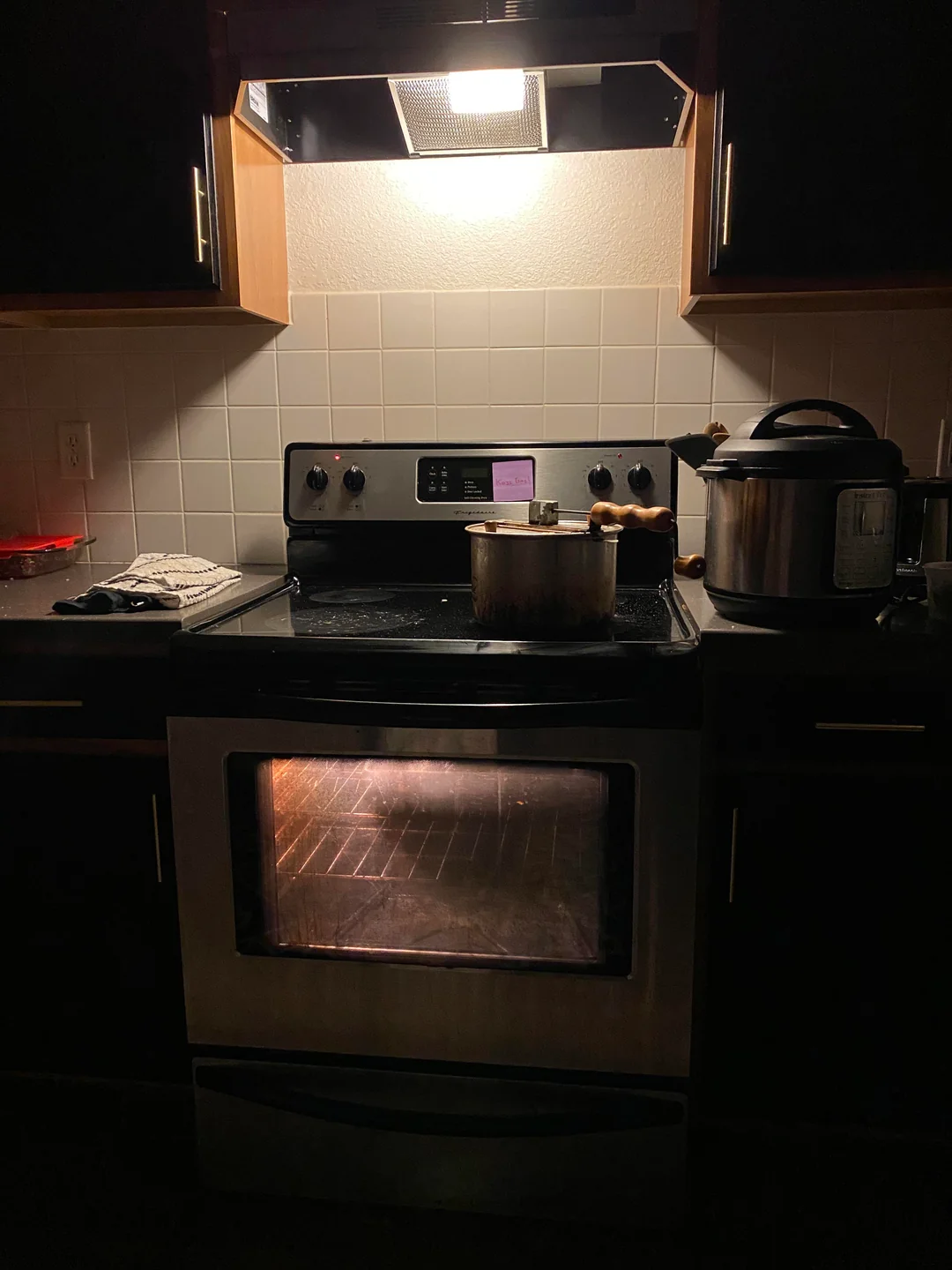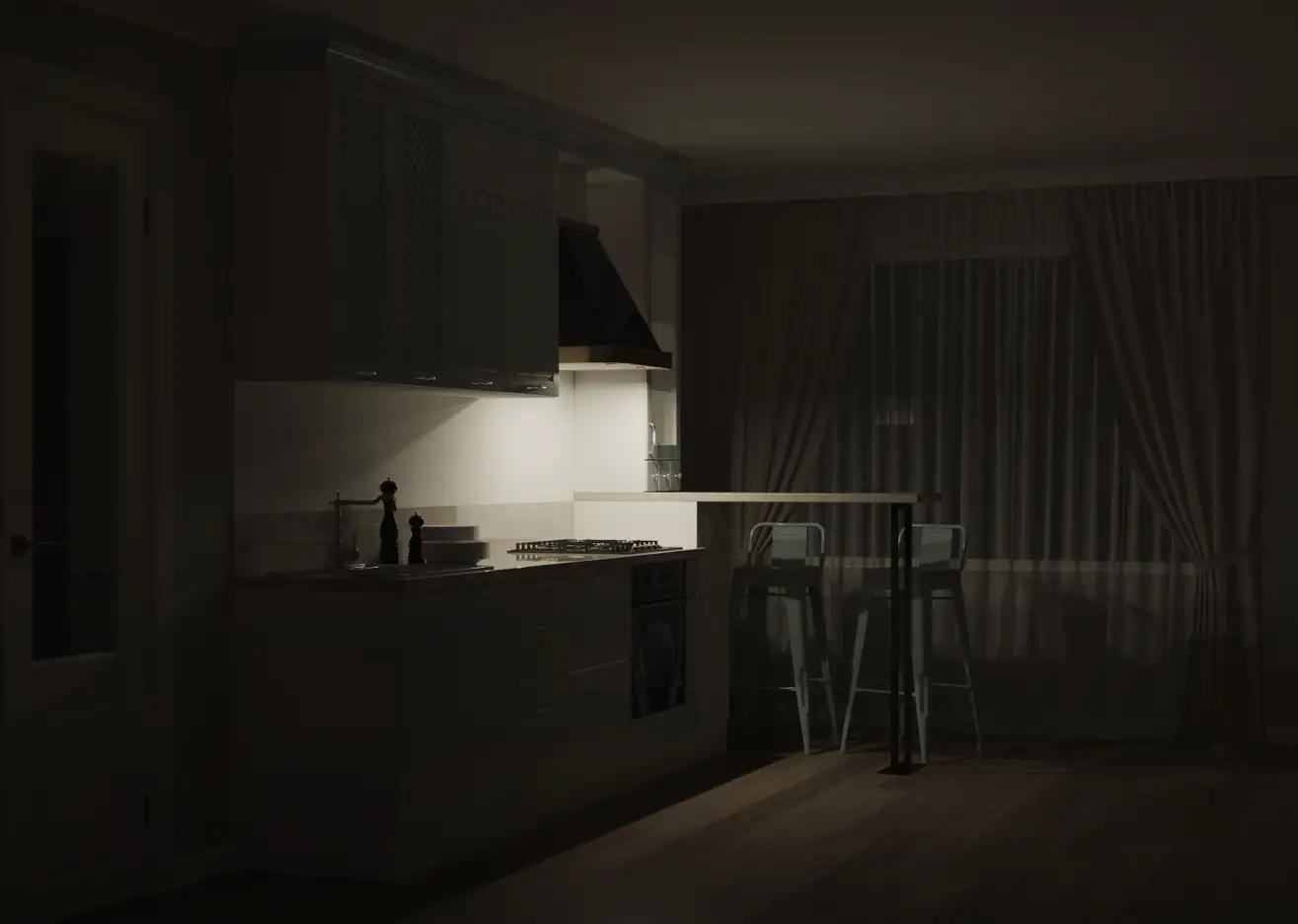Is It Fine to Turn on the Range Hood Lights Overnight?

source: Alamy
Range hoods are essential appliances in the kitchen, designed to remove odors, smoke, and grease from the air while cooking. Many modern range hoods come with built-in lights to illuminate the stovetop and provide extra visibility while preparing meals. However, a common question that homeowners often ponder is whether it’s safe and energy-efficient to leave the range hood lights on overnight. Let’s explore the pros and cons of this practice to determine if it’s fine to keep those lights on while you sleep.
The Pros:
1. Enhanced Kitchen Safety: The most apparent benefit of leaving the range hood lights on overnight is that it improves kitchen safety. In the middle of the night, if you need to visit the kitchen for a drink of water or a snack, having a well-lit space can prevent accidents. You won’t have to fumble around in the dark and risk tripping over obstacles or misjudging where you place your feet.
2. Security: A softly illuminated kitchen can act as a deterrent to potential burglars. It gives the impression that someone is home, which can help ward off intruders. It’s an extra layer of security that doesn’t consume a significant amount of electricity.
3. Convenience: Having the range hood lights on overnight can be a matter of convenience. If you need to quickly check on something in the kitchen, having the lights on saves you the trouble of turning them on and waiting for them to reach full brightness.

The Cons:
1. Energy Consumption: The primary drawback of leaving range hood lights on overnight is the energy consumption. While modern LED lights are relatively energy-efficient, they still use electricity. Over time, this can add up to an increase in your energy bills. If you’re conscious of your energy usage and wish to reduce your carbon footprint, leaving lights on all night may not align with your goals.
2. Bulb Lifespan: Continuously running the range hood lights overnight can shorten the lifespan of the bulbs. Even though LEDs are long-lasting, their lifespan can still be affected by continuous usage. You may find yourself replacing bulbs more frequently.
3. Light Pollution: The light from your kitchen range hood can spill into other areas of your home, potentially disrupting the sleep of family members or causing discomfort. This can be particularly concerning if your kitchen is open-concept and directly adjacent to your sleeping areas.

Balancing Act:
The decision to leave your range hood lights on overnight comes down to a personal preference and the specific circumstances of your household. If enhanced safety, security, and convenience are your top priorities, and you’re not overly concerned about energy consumption, it might be a suitable practice. However, to minimize energy usage and maintain bulb longevity, consider the following tips:
- Use energy-efficient LED bulbs: Choose energy-efficient LED bulbs, as they consume less electricity and last longer than traditional incandescent or fluorescent bulbs.
- Install dimmer switches: If your range hood lights are dimmable, you can keep them at a lower intensity during the night to save energy and reduce light pollution.
- Time the lights: Invest in a timer switch that can automatically turn off the range hood lights after a certain period, ensuring they’re not left on all night.
- Assess security needs: Evaluate the security situation in your neighborhood and the overall layout of your home. If security is a concern, you might find it more reasonable to keep the lights on during the night.
Whether it’s fine to turn on the range hood lights overnight depends on your specific needs and preferences. There are both advantages and disadvantages to consider, so it’s essential to strike a balance that works for you. By making energy-efficient choices and being mindful of the potential downsides, you can ensure that your late-night kitchen visits are safe, convenient, and budget-friendly.